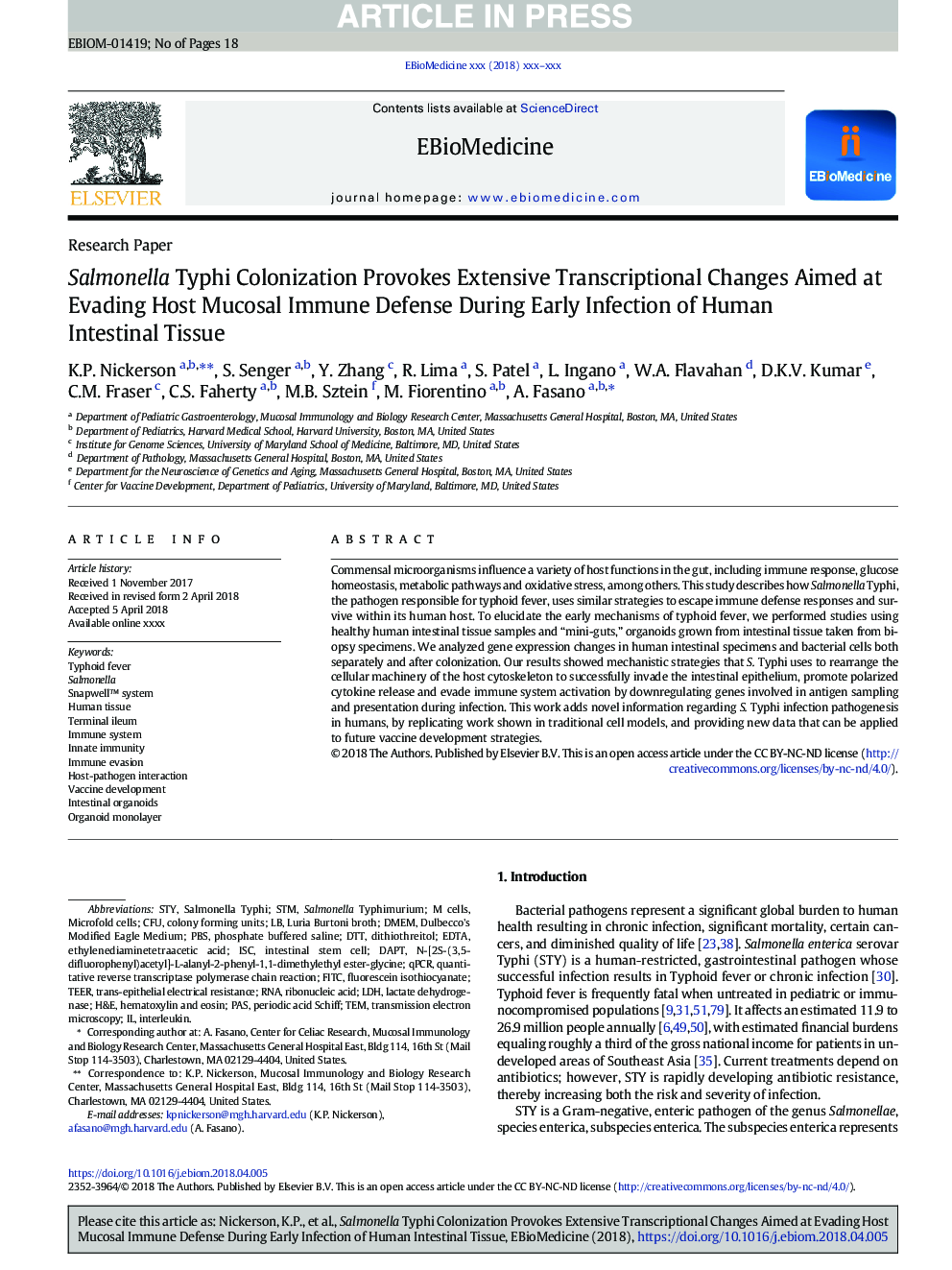| کد مقاله | کد نشریه | سال انتشار | مقاله انگلیسی | نسخه تمام متن |
|---|---|---|---|---|
| 8437259 | 1546868 | 2018 | 18 صفحه PDF | دانلود رایگان |
عنوان انگلیسی مقاله ISI
Salmonella Typhi Colonization Provokes Extensive Transcriptional Changes Aimed at Evading Host Mucosal Immune Defense During Early Infection of Human Intestinal Tissue
ترجمه فارسی عنوان
کلونیزاسیون سالمونلا تیفی موجب تغییرات گسترده ای در رونویسی می شود که به منظور جلوگیری از ضایعات ایمنی مخاطی میزبان در هنگام ابتلا به سرطان سینه روده انسان
دانلود مقاله + سفارش ترجمه
دانلود مقاله ISI انگلیسی
رایگان برای ایرانیان
کلمات کلیدی
ISCSTMSTYPBSmicrofold cellsCFUDMEMDAPTqPCRDTTFITCIntestinal organoidsTEERDulbecco's modified Eagle Medium - Eagle Medium اصلاح شده DulbeccoH&E - H & EEDTA - اتیلن دی آمین تترا استیک اسید Ethylenediaminetetraacetic acid - اتیلینیدامین تتراستیک اسیدribonucleic acid - اسید ریبونوکلئیکRNA - اسید ریبونوکلئیکPeriodic Acid Schiff - اسید فسفریکInnate immunity - ایمنی ذاتیTem - این استinterleukin - اینترلوکینHuman tissue - بافت انسانیTyphoid fever - تب تیفوئیدTerminal ileum - ترمینال ایلئومHost-pathogen interaction - تعامل میزبان-پاتوژنVaccine development - توسعه واکسنImmune system - دستگاه ایمنی یا سیستم ایمنیdithiothreitol - دیتیوتریتولSalmonella - سالمونلاSalmonella typhi - سالمونلا تیفیSalmonella Typhimurium - سالمونلا تیفی موریومM cells - سلول های Mintestinal stem cell - سلول های بنیادی رودهImmune evasion - فرار از ایمنPhosphate buffered saline - فسفات بافر شورfluorescein isothiocyanate - فلوئورسین ایسوتیوسیاناتlactate dehydrogenase - لاکتات دهیدروژناز LDH - لاکتات دهیدروژناز به صورت مختصر شده LDH Trans-epithelial electrical resistance - مقاومت الکتریکی Trans-epithelialTransmission electron microscopy - میکروسکوپ الکترونی عبوریPAS - نهHematoxylin and Eosin - هماتوکسیلین و ائوزینcolony forming units - واحدهای تشکیل دهنده کلنیQuantitative reverse transcriptase polymerase chain reaction - واکنش زنجیره ای پلی مراز ترانس کریتاز معکوس کمی
موضوعات مرتبط
علوم زیستی و بیوفناوری
بیوشیمی، ژنتیک و زیست شناسی مولکولی
تحقیقات سرطان
چکیده انگلیسی
Commensal microorganisms influence a variety of host functions in the gut, including immune response, glucose homeostasis, metabolic pathways and oxidative stress, among others. This study describes how Salmonella Typhi, the pathogen responsible for typhoid fever, uses similar strategies to escape immune defense responses and survive within its human host. To elucidate the early mechanisms of typhoid fever, we performed studies using healthy human intestinal tissue samples and “mini-guts,” organoids grown from intestinal tissue taken from biopsy specimens. We analyzed gene expression changes in human intestinal specimens and bacterial cells both separately and after colonization. Our results showed mechanistic strategies that S. Typhi uses to rearrange the cellular machinery of the host cytoskeleton to successfully invade the intestinal epithelium, promote polarized cytokine release and evade immune system activation by downregulating genes involved in antigen sampling and presentation during infection. This work adds novel information regarding S. Typhi infection pathogenesis in humans, by replicating work shown in traditional cell models, and providing new data that can be applied to future vaccine development strategies.
ناشر
Database: Elsevier - ScienceDirect (ساینس دایرکت)
Journal: EBioMedicine - Volume 31, May 2018, Pages 92-109
Journal: EBioMedicine - Volume 31, May 2018, Pages 92-109
نویسندگان
K.P. Nickerson, S. Senger, Y. Zhang, R. Lima, S. Patel, L. Ingano, W.A. Flavahan, D.K.V. Kumar, C.M. Fraser, C.S. Faherty, M.B. Sztein, M. Fiorentino, A. Fasano,
